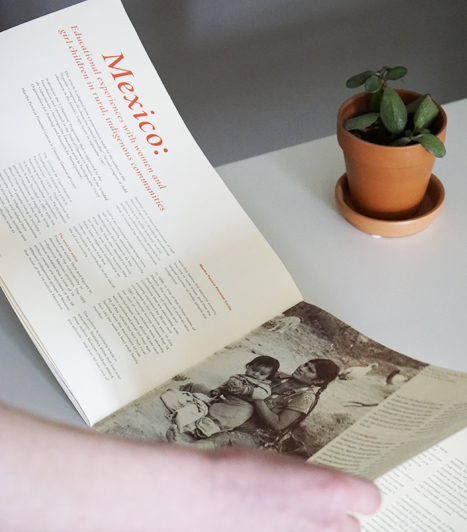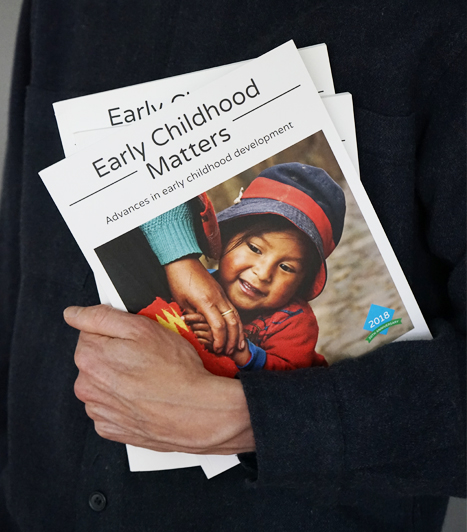About Early Childhood Matters
Early Childhood Matters is the annual journal of the Van Leer Foundation. It has been published and distributed free of charge since 1998.
Early Childhood Matters is the annual journal of the Van Leer Foundation. It has been published and distributed free of charge since 1998.
Early Childhood Matters aims to elevate key issues, spread awareness of promising solutions to support holistic child development and explore the elements needed to take those solutions to scale.
It is written to be accessible to a broad international audience of policymakers, advocates, civil society organisations, civil servants, practitioners and researchers.

Early Childhood Matters grew out of a newsletter first published in 1971 to keep the Foundation’s partners updated on each other’s news and broader developments “in the field of compensatory education for the culturally and socially deprived child”.

Over the years, reader surveys revealed that the newsletter was being used well beyond the Foundation’s network of partners: “for teaching/training, to spark off discussions, to share ideas”. In 1998 it was rebranded as Early Childhood Matters.

Initially, Early Childhood Matters was published twice per year and each issue addressed a theme, such as play, participation or violence. Since 2015, Early Childhood Matters has been published annually, covering advances in early childhood from the previous year.
Early Childhood Matters aims to reflect the interests and priorities of the broad community of advocates, policymakers, academics and practitioners whose work relates to the field of early childhood. These naturally evolve as contexts change and new research points towards new ways to support young children and their caregivers. The below graphics illustrate the main themes addressed in Early Childhood Matters articles over the years.

See how we use your personal data by reading our privacy statement.
This information is for research purposes and will not be added to our mailing list or used to send you unsolicited mail unless you opt-in.
See how we use your personal data by reading our privacy statement.